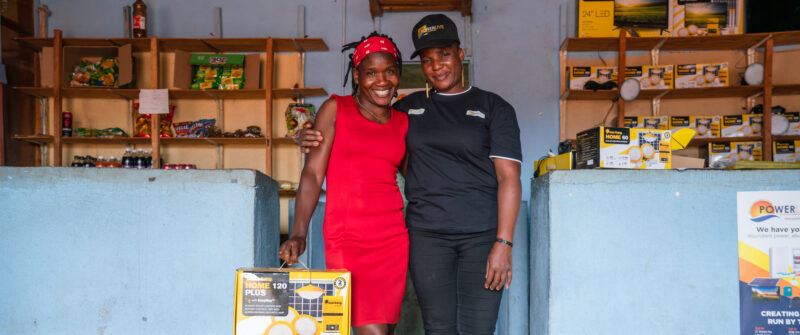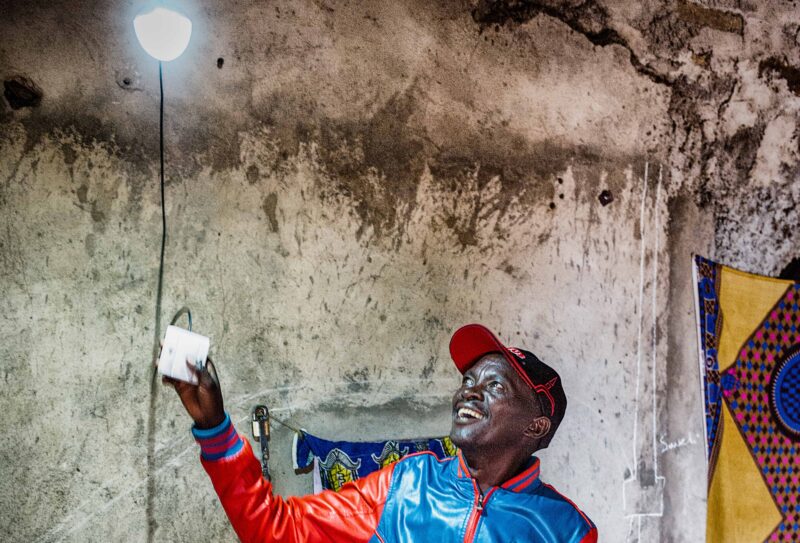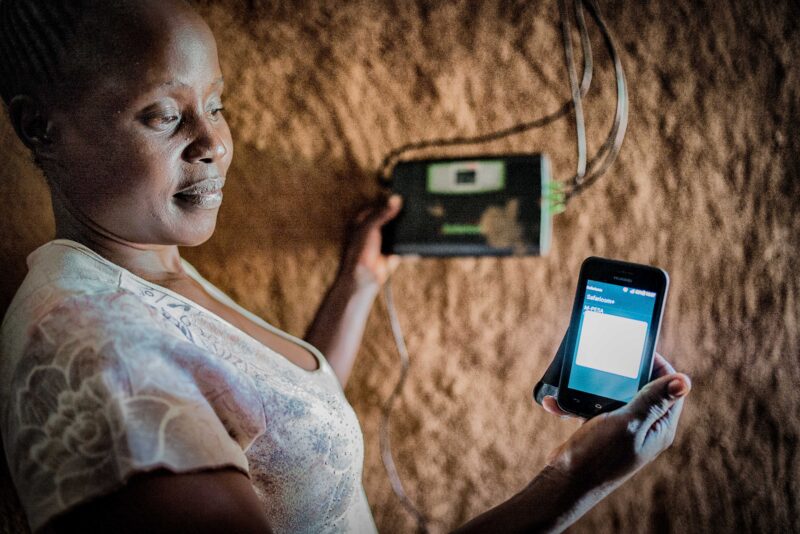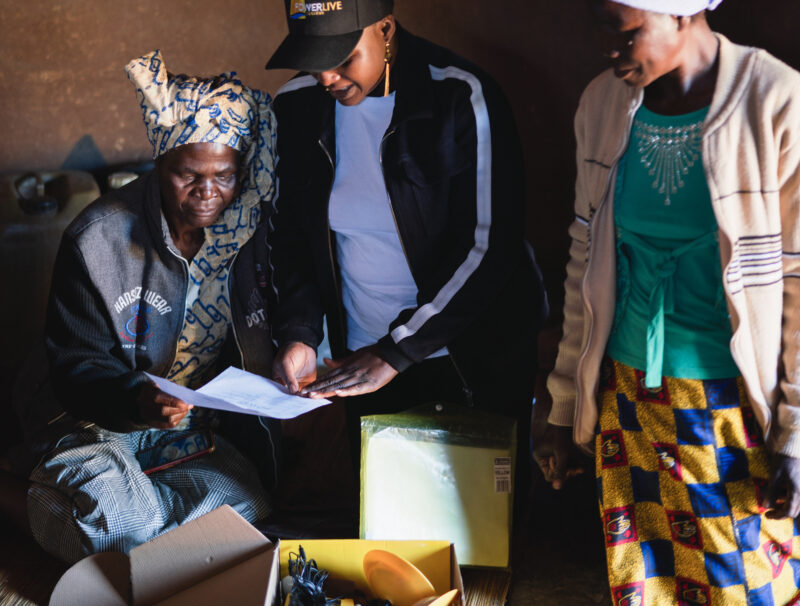
Our goal is to make clean energy accessible to everyone. In this blog post, we share how we’re supporting groups that are often overlooked and how we’re joining forces with others to advocate for change.
By Tom Stevenson with contributions from Charlotte Taylor and Mattia Vianello
At Practical Action, we believe the shift from fossil fuels to clean energy should be just and inclusive for both people and the planet. We recognise the importance of leaving no one behind and we’re dedicated to supporting groups often overlooked by traditional energy access methods.
Much of our focus is on developing and improving off-grid energy access markets. We collaborate with energy businesses, entrepreneurs (particularly women), and local communities. We also help improve programme designs for governments and other decision makers, as well as creating enabling policies and guiding investment.

Market mechanisms
Our recent study for FCDO’s Transforming Energy Access programme found that as access to clean energy improves across sub-Saharan Africa, South Asia, and the Indo-Pacific, lack of access is increasingly concentrated among those living in extreme poverty (living on less than $2.15 a day). This is primarily occurring in rural, as well as fragile and conflict-affected areas. Our research shows us that we need to support these communities with specific and tailored interventions that work for them. This includes specific groups such as women and girls, people with disabilities, and displaced people, who have different energy access needs and challenges.
Different market mechanisms (business models such as those that spread the cost of energy products, and market interventions such as targeted subsidies) can help increase energy access. They address the key barrier of affordability. However, they are often not designed with the challenges of extreme poverty in mind and therefore fail to reach the people we need them to. To tackle this challenge, we’ve developed a series of recommendations that can guide donors, governments, and others to better select, target and design market mechanisms to be more inclusive of people living in extreme poverty.
This study is part of our long-standing commitment to prioritise improving energy access for those most at risk of being left behind. This includes displaced people and people living in remote and hard to reach areas. This focus on leaving no one behind is best demonstrated by our two flagship programmes: our humanitarian energy access work and our Global Distributors Collective.

Humanitarian energy
Through leadership in the humanitarian energy space, we promote and address the energy needs and challenges of displaced people. This is illustrated by our role in the pioneering Moving Energy Initiative, our ongoing Renewable Energy for Refugees Programme in Rwanda and our work to support the Global Platform for Action – the global coordination agency for humanitarian energy.
Poor knowledge and limited experience by governments or humanitarian agencies can mean that humanitarian energy, when it’s provided, is delivered ineffectively. For example, lightbulbs and cookstoves are often distributed freely or overly subsidised, with the assumption that refugees can’t buy them. While this is sometimes necessary, inappropriate use can overlook or undermine longer-term solutions.
We know from experience how to make humanitarian energy access effective. It requires the involvement of multiple and different organisations to create and strengthen ‘supported markets’. These include public, private, and humanitarian or development organisations. Here, displaced people and host communities can manufacture and distribute high quality, affordable, and low-carbon energy products, benefiting from improved energy access and social and economic empowerment.
Increased private sector participation can free up humanitarian funds and generate longer-term economic opportunities. This applies to both national and international companies and refugee entrepreneurs. However, tailored subsidies are important to ensure that everyone’s energy needs are met, not just those who can afford to pay independently. We therefore advocate that the energy needs of displaced people be prioritised in national plans.

Last-mile distribution
The Global Distributors Collective (GDC), hosted by Practical Action alongside strategic and implementing partner Bopinc, consists of over 200 last mile distribution member companies who operate around the world. They sell beneficial products such as solar lights and clean cookstoves to low income, hard-to-reach consumers, and help plug ‘the access gap’.
These companies are delivering energy products more quickly and efficiently than alternative ways. They are helping to develop sustainable markets by creating consumer demand and trust in quality products. They are also providing consumer financing to help low-income customers access otherwise unaffordable products and subsequently unlocking other purchasing opportunities. Through the GDC, we are supporting members with a range of services to improve their businesses performance and growth. Together, we are creating a collective voice and making the broader ecosystem work more effectively to achieve our shared goals.
In this important year for energy access – with the UN General Assembly holding a global stocktake to assess progress and recommend solutions – we will continue to leverage the wealth of evidence and experience we have accumulated throughout our 50-year history.
We will amplify these insights and drive urgent conversations forward. To do this we will continue to work collaboratively with a range of partners, from donors to governments and beyond. Our goal is to ensure that those who are living in extreme poverty, displacement, or in other hard-to-reach settings are not left behind in our collective search for universal energy access.